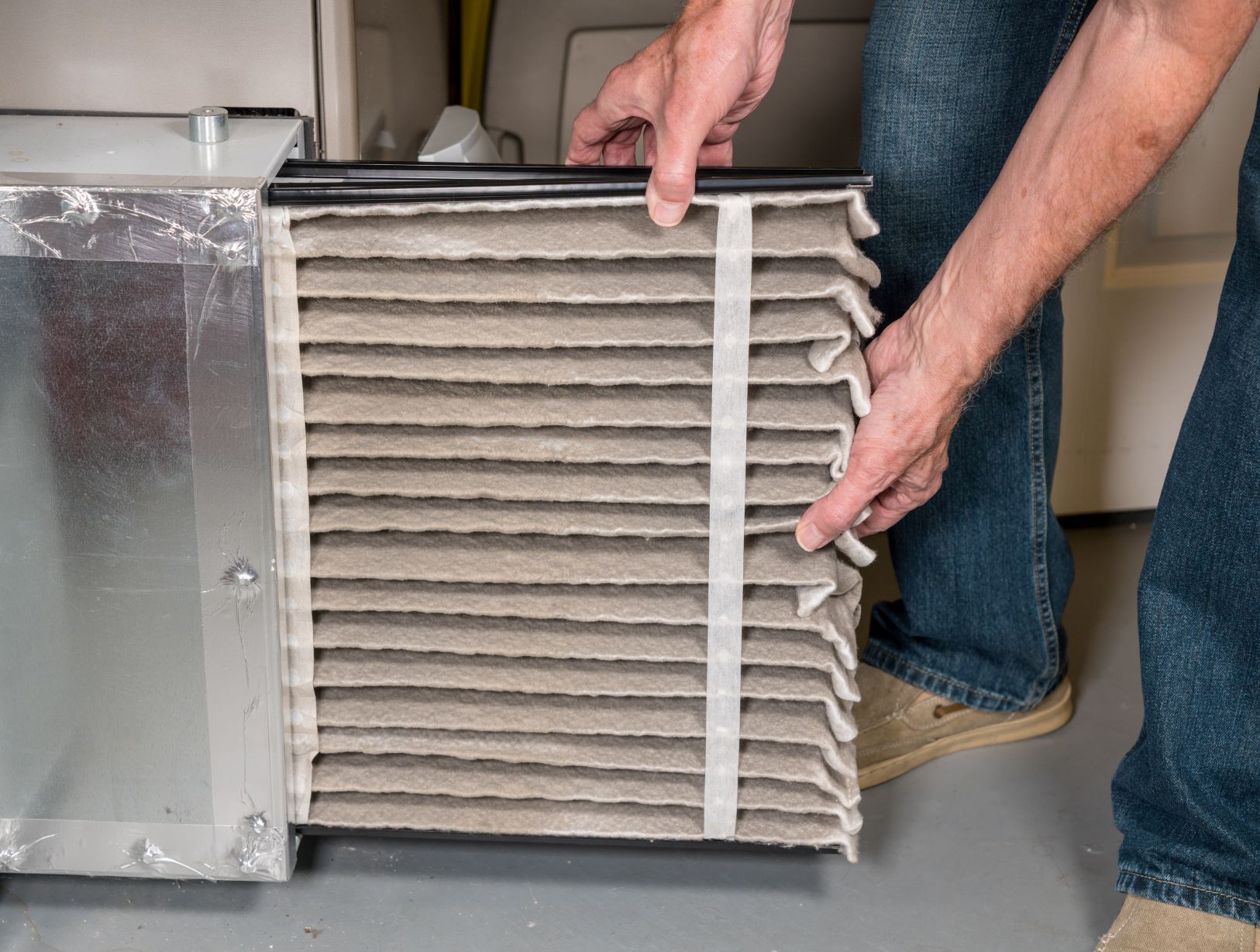Changing your air filter is a critical aspect of caring for your home’s heating and cooling equipment. The air filter plays an important role in system performance, improving the air quality inside your home, and keeping your energy bills down. In our most recent blog, Novak Heating & Cooling explains what the HVAC air filter does, how often it needs to be changed, and why you don’t want to miss a change!
The Role of Your HVAC Air Filter
Many Hiawatha area homeowners believe their heating and air conditioning unit’s air filter is primarily for removing contaminants to improve indoor air quality. While this can be an added benefit provided by the air filter, its main purpose is to keep contaminants out of the system.
When the air filter is full of extracted contaminants, it is unable to remove any further particles from the air circulating through your HVAC system. A dirty or clogged air filter allows dust, dirt, and other contaminants to enter the equipment and settle on the delicate components housed within, which can cause damage as well as a decline in system performance and energy efficiency.
How Often to Change Your Air Filters
The frequency you need to change your air filters depends on many elements, including the type of filter, how often your HVAC system runs, and qualities specific to your household. Filter manufacturers recommend changing intervals for air filters based on the type of filter, but you may find it necessary to do so sooner based on conditions inside the home that impact filter lifespan.
Replacing your filter with a clean air filter can be performed monthly, every few months, twice a year, or even annually as there are many types of filters available. Use the recommended schedule for changing your air filters as a guideline, and use monthly inspections to determine if a change is needed sooner than anticipated.
Factors that affect filter service life include:
- MERV rating of the filter. MERV stands for minimum efficiency reporting value, which is an industry measure used to show the efficiency of a filter at removing airborne particles. The higher a filter’s MERV rating, the longer it typically lasts. Filters with a MERV of 1 to 4 should usually be replaced monthly, while more efficient filters at MERV 8 may require replacement every 3 months. Filters at MERV 10 or 11 typically need replacing about every six months. High-efficiency MERV 14 or 15 filters used in whole-home air cleaners typically should be replaced once per year.
- Frequency of HVAC system use. During periods of low system use, not as much air circulates through the HVAC system, so the filter does not fill up with contaminants as quickly as it does during times when the HVAC system runs heavily, such as during the heat of summer or chill of winter. In the spring and fall, your filters may last longer than during winter or summer months.
- Household factors. The more air pollutants present in your home, the faster your filters will fill up. Changing your air filters is needed more frequently in homes with indoor pets or households where smoking indoors is permitted, as pets and cigarette smoke both add pollutants to the air.
- Personal factors. In homes with members who suffer from allergies, asthma, or other respiratory conditions, it can be helpful to change air filters more frequently as well as use higher-efficiency filters. Replacing the filter frequently ensures the HVAC system is always equipped with a fresh, working filter to continuously remove allergens and other triggering pollutants from the home’s air supply to increase the comfort and health of certain family members.
What Happens If You Forget to Change Your Air Filter?
If you forget to change your air filters regularly, this has negative effects on the performance and energy efficiency of your heating and cooling equipment and causes poor indoor air quality within the home.
- Operating HVAC equipment with a dirty air filter leads to airflow restrictions – it essentially blocks air from properly moving through the system. This causes overheating and forces the system to expend more energy to properly do its job, increasing the likelihood of a breakdown and leading to higher utility bills. Changing your air filter regularly can reduce air conditioner energy consumption by 5 to 15 percent.
- A dirty filter is no longer able to extract pollutants from the air supply, so these particles remain and circulate back into living areas. The household experiences higher concentrations of allergens and other pollutants, increasing exposure and resulting in health side effects.
- When airborne particles aren’t removed and can flow back into living areas, they can cause surfaces to become dirty at a quicker rate. The home may seem dustier than usual despite your frequent cleaning efforts.
HVAC Filter Care with Novak Heating & Cooling
Novak Heating & Cooling knows how important changing your air filter is to the overall health and performance of your HVAC system and your household. It provides several benefits, and it’s a simple maintenance step that any homeowner can do. If you need assistance selecting the right filter for your HVAC system that addresses your indoor air quality concerns, please contact us today!

